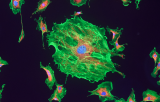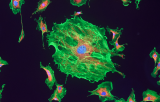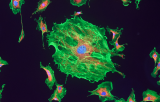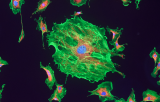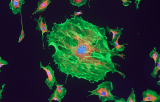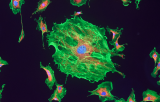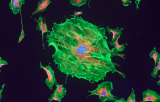
In situ hybridization probes - Chronic lymphocytic leukemia (CLL)
Chronic lymphocytic leukemia (or Chronic lymphoid leukemia or CLL) is the most common leukemia in adults. CLL is a monoclonal disorder and a typically slow-growing cancer, many people don’t have any symptoms for at least a few years.
CLL begins in lymphocytes in the bone marrow and extends into the blood. But over time, the cells grow and spread to other parts of the body, including the lymph nodes, liver and spleen. CLL develops when too many abnormal lymphocytes grow,, crowding out normal blood cells and making it difficult for the body to fight infection.
A disease like CLL, therefore may take several years before to it becomes serious. Comparatively, the progression of acute lymphocytic leukemia (ALL) is very quick.
Chronic lymphocytic leukemia most commonly affects older adults. Some patients die rapidly, within 2-3 years of diagnosis, because of complications from CLL, but most patients live 5-10 years.


